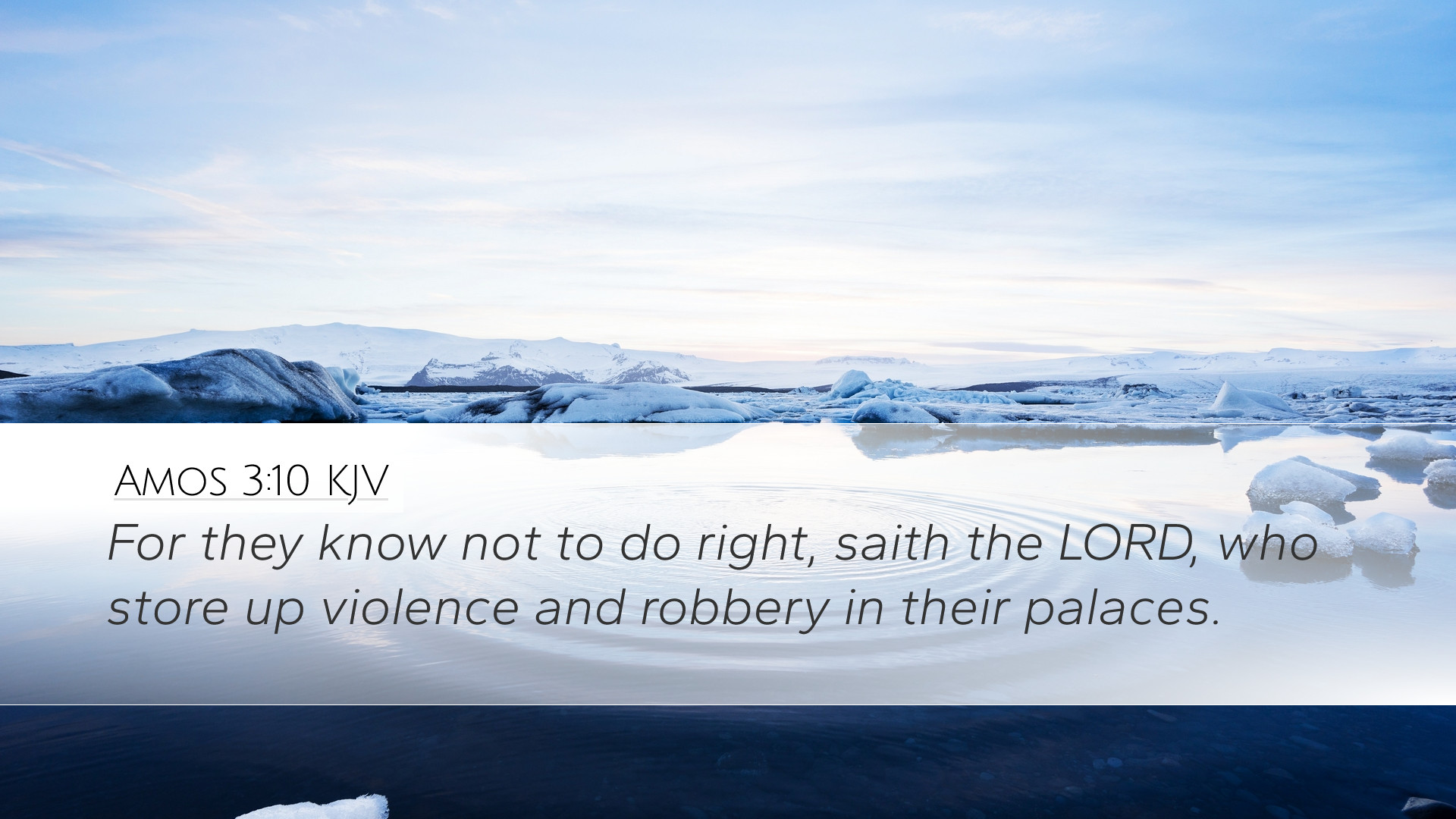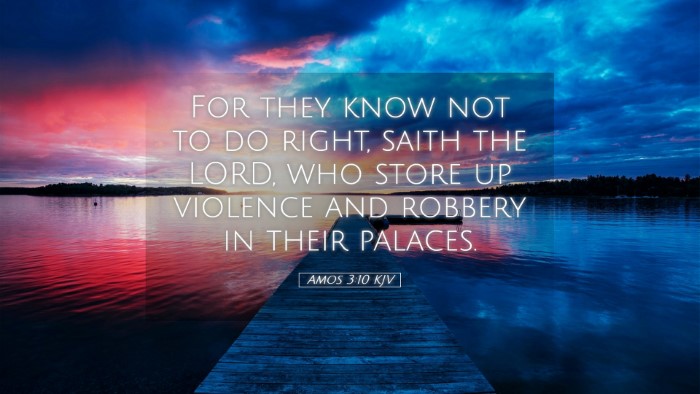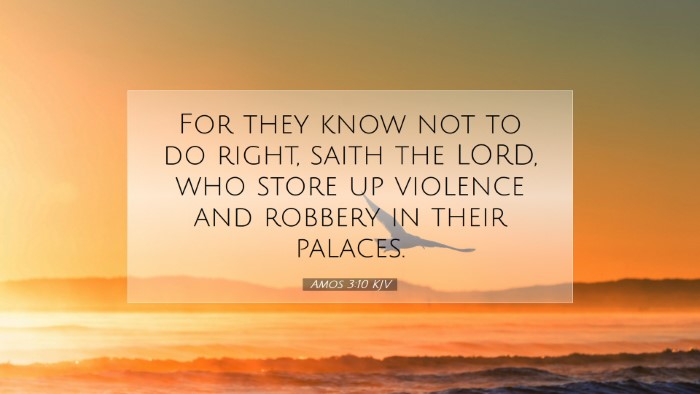Old Testament
Genesis Exodus Leviticus Numbers Deuteronomy Joshua Judges Ruth 1 Samuel 2 Samuel 1 Kings 2 Kings 1 Chronicles 2 Chronicles Ezra Nehemiah Esther Job Psalms Proverbs Ecclesiastes Song of Solomon Isaiah Jeremiah Lamentations Ezekiel Daniel Hosea Joel Amos Obadiah Jonah Micah Nahum Habakkuk Zephaniah Haggai Zechariah MalachiAmos 3:10
Amos 3:10 KJV
For they know not to do right, saith the LORD, who store up violence and robbery in their palaces.
Amos 3:10 Bible Commentary
Commentary on Amos 3:10
Amos 3:10 states: "For they know not to do right, saith the Lord, who store up violence and robbery in their palaces."
Contextual Overview
The prophetic book of Amos presents a pronounced message of judgment against Israel, specifically targeting the moral and social injustices prevalent among its people. When analyzing Amos 3:10, one must consider the social and economic conditions of Israel during this time, where corruption abounded among the elite and the poor were oppressed.
Insights from Public Domain Commentaries
Matthew Henry’s Commentary
Matthew Henry emphasizes that Israel’s ignorance of righteousness stemmed from a deliberate turning away from God’s law. He highlights that their failure to "do right" reflects a moral blindness where the wealthy, who gathered riches through oppression and dishonesty, were blinded to the ethical demands of their covenant with God. Henry asserts that civil violence and theft had become ingrained practices, indicating a systemic failure that implicated the societal leaders.
Albert Barnes’ Notes on the Whole Bible
Albert Barnes elaborates on the phrase "who store up violence and robbery". He explains that the accumulation of violence and robbery signifies a toxic culture of injustice, where those in power exploited the vulnerable for personal gain. Barnes posits that the consequences of such actions not only affect the oppressors but ultimately lead to national ruin. He points out that the Lord’s indictment serves as both a warning and a call to repentance, emphasizing God's desire for justice and righteousness among His people.
Adam Clarke’s Commentary
Adam Clarke provides a deeper analysis into the nature of ignorance mentioned in this verse. He suggests that true ignorance comes from a lack of understanding of God’s law and the ethical implications it carries. Clarke connects this ignorance to the willful disregard for divine commandments, emphasizing that these individuals are not merely unaware but choose to engage in wrongdoing knowingly. Furthermore, Clarke posits that such behavior results in the accumulation of societal decay, leading to divine judgment.
Theological Implications
The theological implications of Amos 3:10 resonate profoundly with contemporary congregations. The Lord's charge highlights the seriousness with which God views injustice and moral failure. Scholars often point out that such a warning remains pertinent in modern times, where societal structures can foster environments where wrongdoings are perpetuated invisibly and unchecked.
God’s Justice in Society
The verse encapsulates God’s desire for justice as a foundational characteristic of His nature. Just as He condemned Israel, Christian communities today are tasked with promoting justice within their societal frameworks. This brings forth the question of moral responsibility among believers in the face of societal injustice.
Call to Righteousness
The challenge for individual believers and collective congregations is to remain vigilant against the influences of societal corruption. Amos 3:10 serves as a reminder of God’s expectations: that His followers act in accordance to His principles and uphold righteousness against the backdrop of a world rife with sin. The call extends to education, advocacy, and the implementation of justice within personal, communal, and national contexts.
Conclusion
In summation, Amos 3:10 provides a profound insight into the nature of sin, societal responsibility, and the character of God. It serves as an enduring call to action for believers, urging them to realign their lives with God’s expectations of justice and mercy. By reflecting on the wisdom of esteemed commentators like Matthew Henry, Albert Barnes, and Adam Clarke, pastors, students, theologians, and Bible scholars can glean valuable insights into this pivotal Scripture, fostering a deeper understanding of biblical justice in their ministries and studies.


